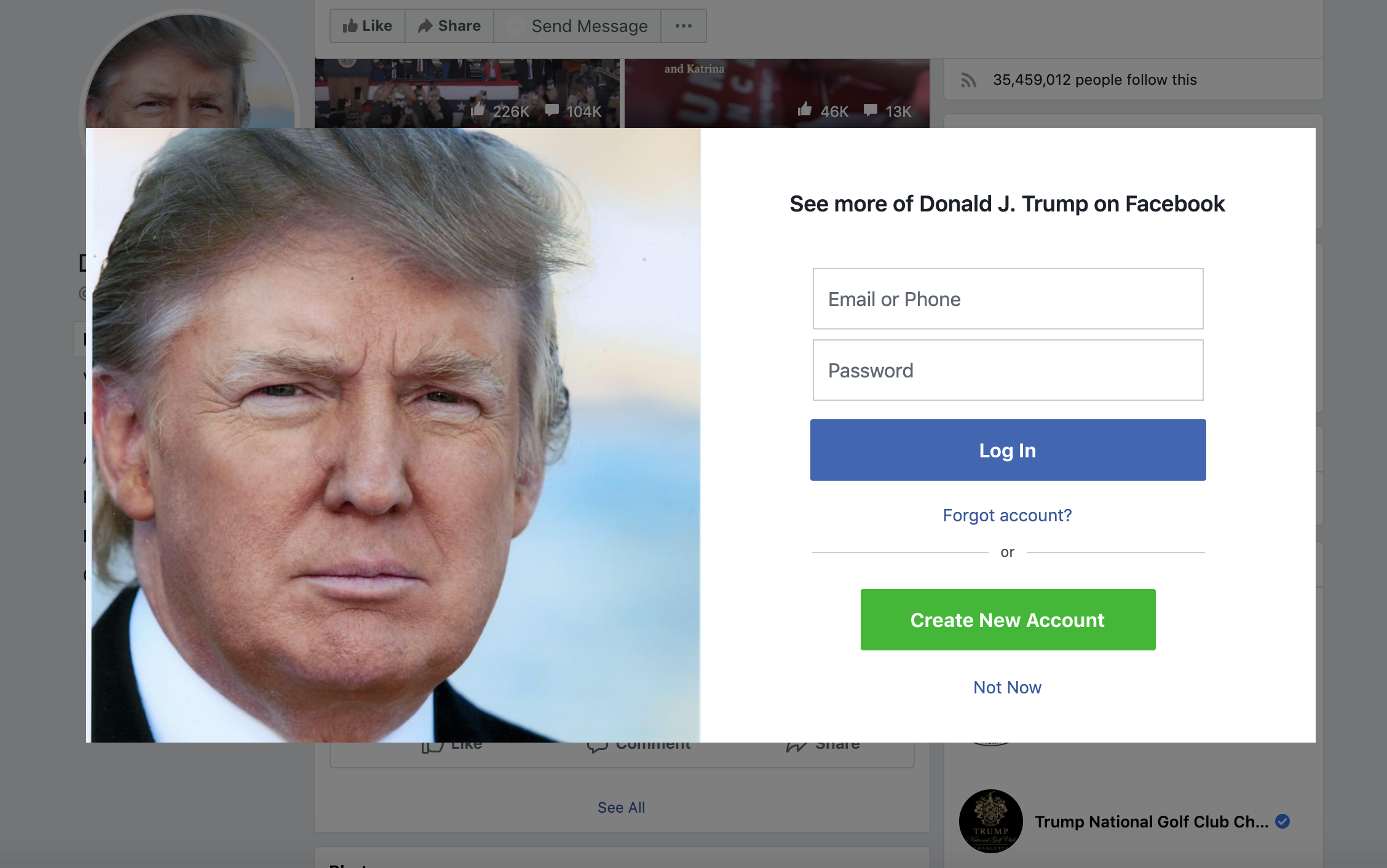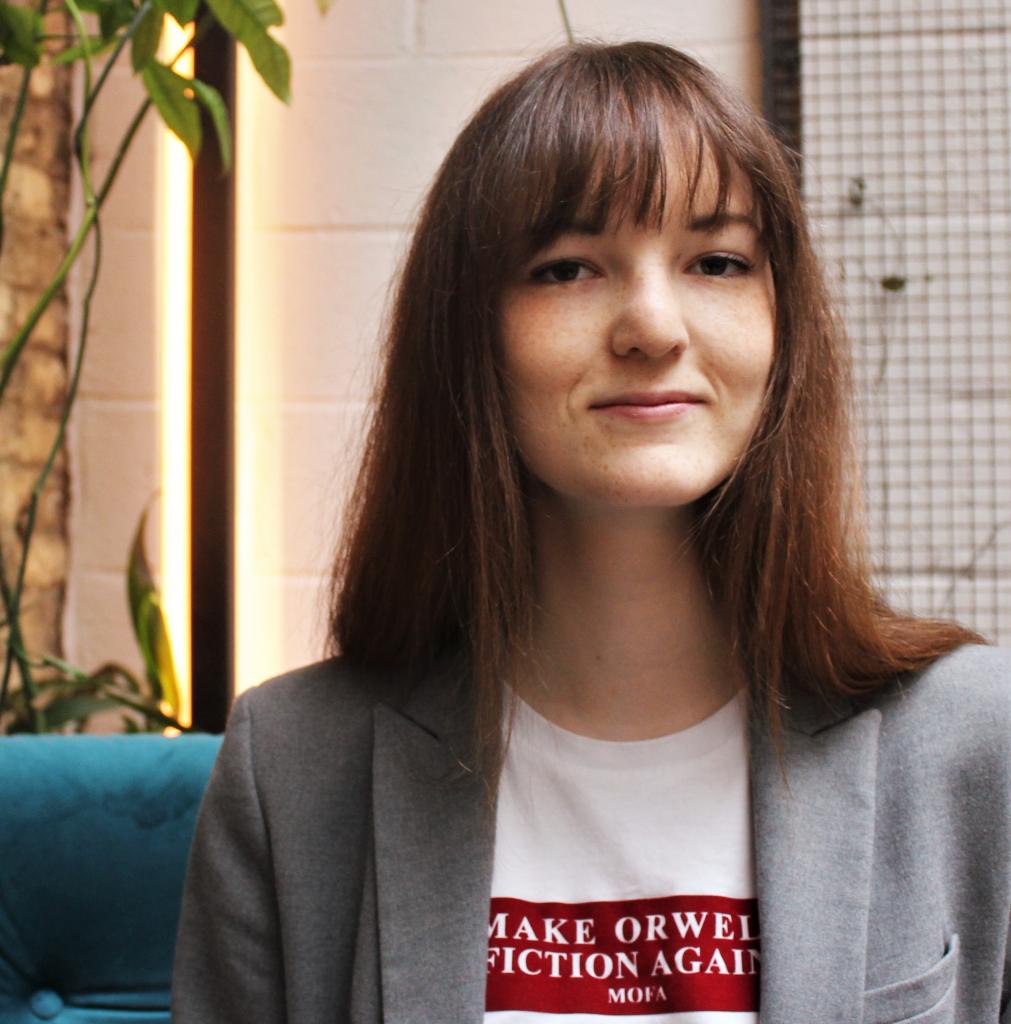What Do the Available Public Comments About the Trump Ban Actually Say?
Early public comments to the Facebook Oversight Board show a surprising consensus that banning the former president was the right move.

Published by The Lawfare Institute
in Cooperation With

When the Facebook Oversight Board tallied up the public comments on a recent case concerning a Hindi-language post, it reported that the case had received a grand total of six comments. But then there’s the case about Facebook’s decision to indefinitely ban Donald Trump’s account in the wake of the U.S. Capitol riots. So far, it has received more than 9,000 comments. And as thousands of comments poured in, the Oversight Board extended the public comment deadline by an extra week, citing “high levels of interest.” On Feb. 23, the Oversight Board confirmed it had also received a statement from the “user” in this case—meaning former President Trump himself has weighed in.
The public comments process is an optional step that the Oversight Board is empowered to take during its decision-making process to seek input from external parties. Interested individuals and organizations can submit written comments to the board advocating for a certain decision or raising important factual or contextual issues for the board’s consideration.
The Trump case is a tough call on the free expression and Facebook Community Standards merits. Two of the country’s foremost experts on protest law and the First Amendment, for example, issued dueling op-eds over whether Trump’s actions constituted incitement or were protected speech. And that’s to say nothing of the political aspects of the case. In opening this case to public comment, the Oversight Board hoped the public would “share any insights and perspectives with the Board that they believe will assist with making a decision.”
Comments submitted to the Oversight Board are not immediately made public. When it releases its final decision on the Trump ban, the board will also publish the comments that commenters have consented to be made public. Some of these comments might be anonymized upon release, per the request of the commenter. But some organizations and individuals have chosen to publicly release their comments, and the collection of public opinions is worth a closer look.
Who Are the Early Commenters?
I’ve identified 18 letters to the Oversight Board regarding Trump’s ban that have also been published on Twitter or on the contributing organizations’ websites.
The subset of public letters is small, but the contributors are high profile. Commenters include a group of Republicans lawmakers from the House Judiciary Committee as well as a collection of prominent free speech or technology advocacy groups, including the Knight First Amendment Institute, the Center for Democracy & Technology and Access Now. And one publicly shared letter came from the Leadership Conference on Civil and Human Rights, a collection of civil society organizations representing the ACLU and Human Rights Watch alongside hundreds of other nongovernmental organizations.
Experts commenting in their individual capacity included David Kaye, the former U.N. Special Rapporteur on Freedom of Expression, and Steven Feldstein, a researcher at the Carnegie Endowment for International Peace. Even “The Real Facebook Oversight Board,” a group devoted to protesting what it sees as inadequate self-regulation by Facebook, weighed in with a public comment of its own.
What Are the Early Commenters Recommending?
Until the Oversight Board releases its decision and the mass of public comments, the handful of letters that have been made public so far are the most useful source of insights into commenter recommendations. And despite the diverse set of authors, nearly all of the published comments have something in common: a near-universal affirmation of Facebook’s decision to suspend Trump’s account. In many instances, the letters urge that the “indefinite” ban put in place during the Capitol riots be made permanent. The only exception to the general trend is the collection of Republican congressmen (who conspicuously did not address the issue of the ban itself). The letters that have been made public have a clear and definite slant toward keeping Trump off Facebook.
Many of the comments also encouraged the board to claim greater remit to review and make broad recommendations on Facebook’s policies and fundamental features of its algorithm design. The Center for Democracy & Technology and Access Now comments, while affirming the Trump ban, called on Facebook to make systemic reforms to prevent global human rights violations and improve transparency in its content moderation policies.
One interesting set of public comments attempts to carve a middle way for the Oversight Board between banning and reinstating Trump. For example, the Knight First Amendment Institute’s letter explicitly does not address the Trump ban. Instead, it advises the Oversight Board to reject the specific questions posed to it by Facebook in its referral to the board and seize a broader remit for itself in the process. The Knight letter says, “Rather than answer the question, the Board should advise Facebook to commission an independent study of how its platform may have contributed to the events of January 6th.” The Knight Institute recommends that the board refuse to decide on the Trump question until Facebook agrees to such a study.
But it’s important to note that the 18 publicly available comments represent a small and self-selected sampling of the 9,000-plus received by the Oversight Board. It’s possible, and perhaps even likely, that additional well-known academics and free speech advocacy organizations also submitted comments to the Oversight Board—they just chose to keep their comments private.
Ultimately, it’s still unclear why such an overwhelming majority of the published comments support deplatforming Trump. There are only those 18 comments to work with, and who knows what the other 9,000 comments and commenters have to say.
Why the Slant Toward Banning Trump?
It’s useful to think about the possible reasons for the imbalance. Because comments to the Oversight Board aren’t public by default, commenters have to make their own calculations about the impact of publishing their recommendations online.
By the letter of the “law,” the Trump ban isn’t necessarily an easy call. Even though most published comments to the Oversight Board have reached a shared conclusion in approving Trump’s ban, they get there through wildly different ethical, legal and public policy-based arguments. It’s also not entirely clear what set of principles the board will consider itself most bound by: First Amendment jurisprudence doesn’t apply, but the board is obligated to apply Facebook’s Community Standards, guidelines, and values, along with international human rights norms. Many of the letters affirm the difficulty of being in the Oversight Board’s position as the decision-maker, and most come with their own nuanced set of recommendations and caveats.
Then there’s the politics of the situation. Take the letter from the House Republican cohort, for example. The Republican letter contains no explicit discussion of the ban itself and spends a lot of text decrying “censorship” and “blocking” of “conserative viewpoints.” Their letter reads like a partisan political statement, intended chiefly as signaling to constituents, rather than a substantive recommendation for the Oversight Board.
But the politics of the situation extend beyond just the Republican lawmakers, in ways that might influence the slant of the comments.
Organizations submitting “Deplatform Trump” letters may as well reap the public relations benefits of the extensive press coverage given to early commenters. Making their letters public also allows commenters to present their ideas with additional context by providing quotes to reporters or publishing simultaneous op-eds. But the public relations calculation gets more complicated for those who might come down on the other side. It’s worth underscoring that the sample of researchers, experts, and advocacy groups who have gone public is self-selected, which could explain the overwhelming anti-Trump slant.
While a handful of freedom of expression experts and civil society organizations spoke out, many well-known voices in the tech and civil liberties sphere chose not to comment publicly on the Trump ban. Of course, it’s possible that silence is an intentional move to protest the board or deny the legitimacy of its public comment process. But because comments submitted to the board are private by default, it won’t be possible to know which experts and organizations chose to weigh in and which of them chose to keep out of the debate until the board’s final decision has been made, and perhaps not even then.
How Will the Oversight Board Respond?
So far, these early public comments show the Oversight Board may face two distinct types of pressure in deciding on the Trump ban. The first is public facing: If it turns out that the early consensus in favor of deplatforming Trump is representative of the other 9,000 comments, what happens if the board’s decision breaks with that consensus? A contrary ruling after such widespread media coverage could shatter the legitimacy of the comments process—and risks posing a legitimacy challenge to the board in general. More than anything else, though, such a decision could discourage future public participation in the process.
The second pressure is Facebook facing. If the board continues to receive high-profile comments critiquing its limited jurisdiction and calling for systemic and structural reforms, the board may feel pressure to increase its authority. If it tries to claim a broader scope of review in its forthcoming decisions, conflict could arise with Facebook executives wary of losing control of their own creation. It’s easy to imagine a Jacksonian-style crisis of legitimacy featuring Mark Zuckerberg as the rogue executive: “The Oversight Board has made their decision; now let them enforce it.”
Other interesting questions remain. The letter from Republican lawmakers was unexpected, and it raises questions about whether and to what extent government actors could weigh in on the Oversight Board’s public comment process without chilling speech.
Procedural questions should also be asked about the Oversight Board’s public comments process. It shares some similarities with both the amici curiae feature of the judiciary as well as the notice-and-comment procedures used by administrative agencies, but it matches neither exactly. For the Oversight Board, soliciting public comment is optional, not required—similar to how amicus briefs can be filed only with the court’s consent, but contrary to notice and comment, which is usually required by statute. However, unlike amicus briefs, which are public and require extensive conflict-of-interest disclosures, authors of Oversight Board comments are able to withhold their names, recommendations and organizational affiliations from public release.
If high-profile or powerful commenters, including government officials, are allowed to comment secretly on Oversight Board cases, this raises a host of new legitimacy problems for the board. In the end, will the Oversight Board create more transparency and accountability issues than it solves?
Perhaps the Oversight Board doesn’t need to reinvent the wheel. The federal government, helpfully, has created an administrative agency to study all of its other administrative agencies—it’s called the Administrative Conference of the United States, or ACUS. ACUS has commissioned dozens of studies on agency notice-and-comment rule-making procedures. Government bureaucrats may have something to teach the private sector about running a fair, transparent and effective public comment process.





